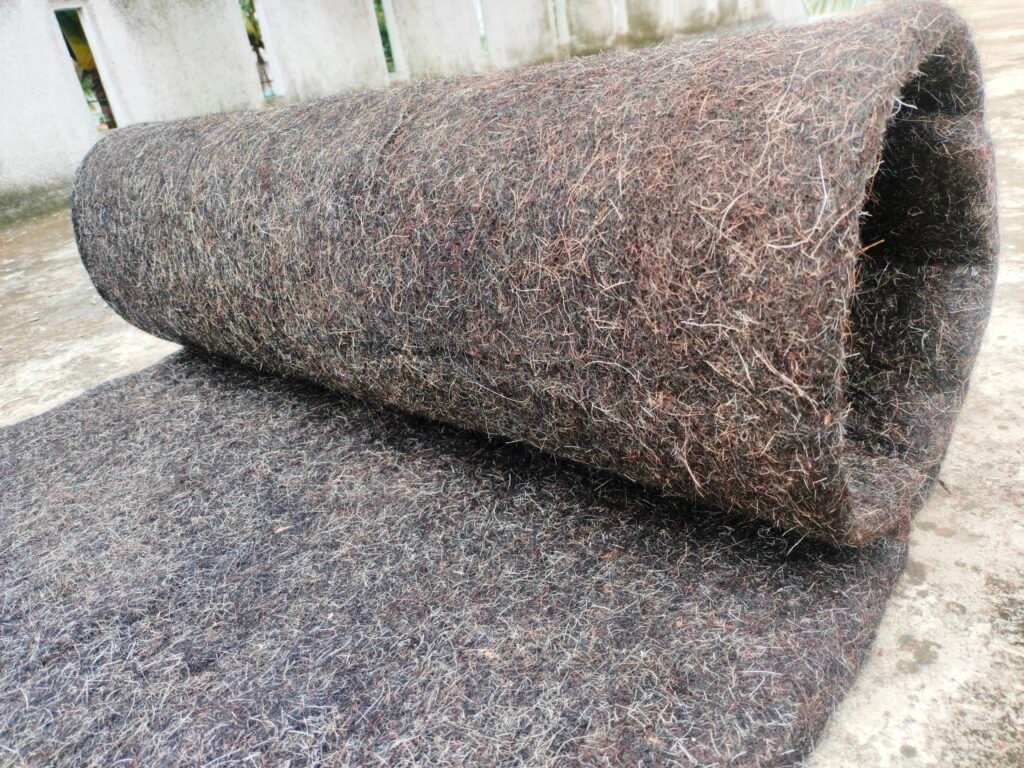The Benefits of Using a Pure Wool Yoga Mat
The Benefits of Using a Pure Wool Yoga Mat

Yoga is more than a practice; it’s a journey towards wellness that involves choosing the right tools to support both physical and mental growth. In this journey, selecting a wool yoga mat is crucial, as it becomes your personal space during practice. The Jan/Jen wool Yoga mat from Ghongadi India, crafted from pure wool, offers unique benefits over traditional synthetic mats. Here’s a closer look at the health and environmental advantages of opting for a wool yoga mat.
Health Benefits of Wool Yoga Mats:
Natural Comfort and Cushioning:
Wool is known for its natural softness and cushioning properties. Unlike synthetic materials, which can be harsh and less forgiving, a wool yoga mat provides a comfortable surface that supports joints and muscles. This cushioning effect is particularly beneficial for practices that involve prolonged holding of postures or poses that put pressure on knees, hips, or elbows.
Temperature Regulation:
Wool has the innate ability to regulate temperature, providing a comfortable experience regardless of the weather. During colder months, a wool yoga mat retains heat, keeping you warm and cozy, while in warmer conditions, it wicks away moisture, keeping the surface cool and dry. This temperature regulation can enhance your practice, allowing you to focus on the poses rather than being distracted by discomfort.
Hypoallergenic Properties:
Pure wool is naturally resistant to dust mites, mold, and mildew, making it an excellent choice for individuals with allergies or sensitivities. Wool’s hypoallergenic properties can contribute to a healthier practice environment, reducing the risk of allergic reactions often triggered by synthetic materials treated with chemicals.
Non-Slip Surface:
The texture of wool provides a non-slip surface, essential for maintaining stability and balance during yoga practice. Unlike synthetic mats that can become slippery when wet, the natural fibers of a wool mat offer a firm grip, ensuring safety and reducing the risk of injuries.
Environmental Advantages of Using Wool Yoga Mat
Biodegradable and Renewable:
Wool is a renewable resource that is biodegradable, breaking down naturally without harming the environment. In contrast, synthetic mats are often made from PVC or TPE, which are not biodegradable and can take hundreds of years to decompose, contributing to environmental pollution.
Sustainable Production:
The production of wool is a sustainable process. Sheep, the primary source of wool, are shorn once a year, and the animals continue to live healthily and contribute to the ecosystem. Ghongadi India ensures that their wool mats are produced ethically, supporting both the environment and the communities involved in the production process.
Energy Efficiency:
Producing wool requires less energy compared to synthetic materials. The manufacturing process of synthetic mats often involves chemical treatments and high-energy machinery, leading to a larger carbon footprint. Choosing a wool yoga mat reduces your personal carbon footprint and supports a more sustainable lifestyle.
Aesthetic and Cultural Appeal of Using Wool Yoga Mat
Unique Aesthetic:
Wool yoga mats have a unique aesthetic that sets them apart from conventional mats. The natural texture and color variations add a touch of elegance and authenticity to your practice space, aligning with the holistic essence of yoga.
Cultural Heritage:
The Jan/Jen Yoga mat by Ghongadi India is crafted using traditional techniques passed down through generations. This not only ensures a high-quality product but also supports cultural preservation and local artisans. By choosing this mat, you are connecting with a rich history of craftsmanship and supporting the livelihoods of skilled artisans.
Conclusion:
Choosing a wool yoga mat is a personal decision that reflects your values and priorities in your practice. The Jan/Jen wool Yoga mat from Ghongadi India, made from pure wool, offers significant health and environmental benefits over synthetic alternatives. Its natural comfort, temperature regulation, hypoallergenic properties, and non-slip surface enhance the quality of your practice. Furthermore, its eco-friendly production and cultural significance make it a responsible and meaningful choice. By opting for a wool yoga mat, you are embracing a holistic approach to wellness that honors both your health and the planet.
